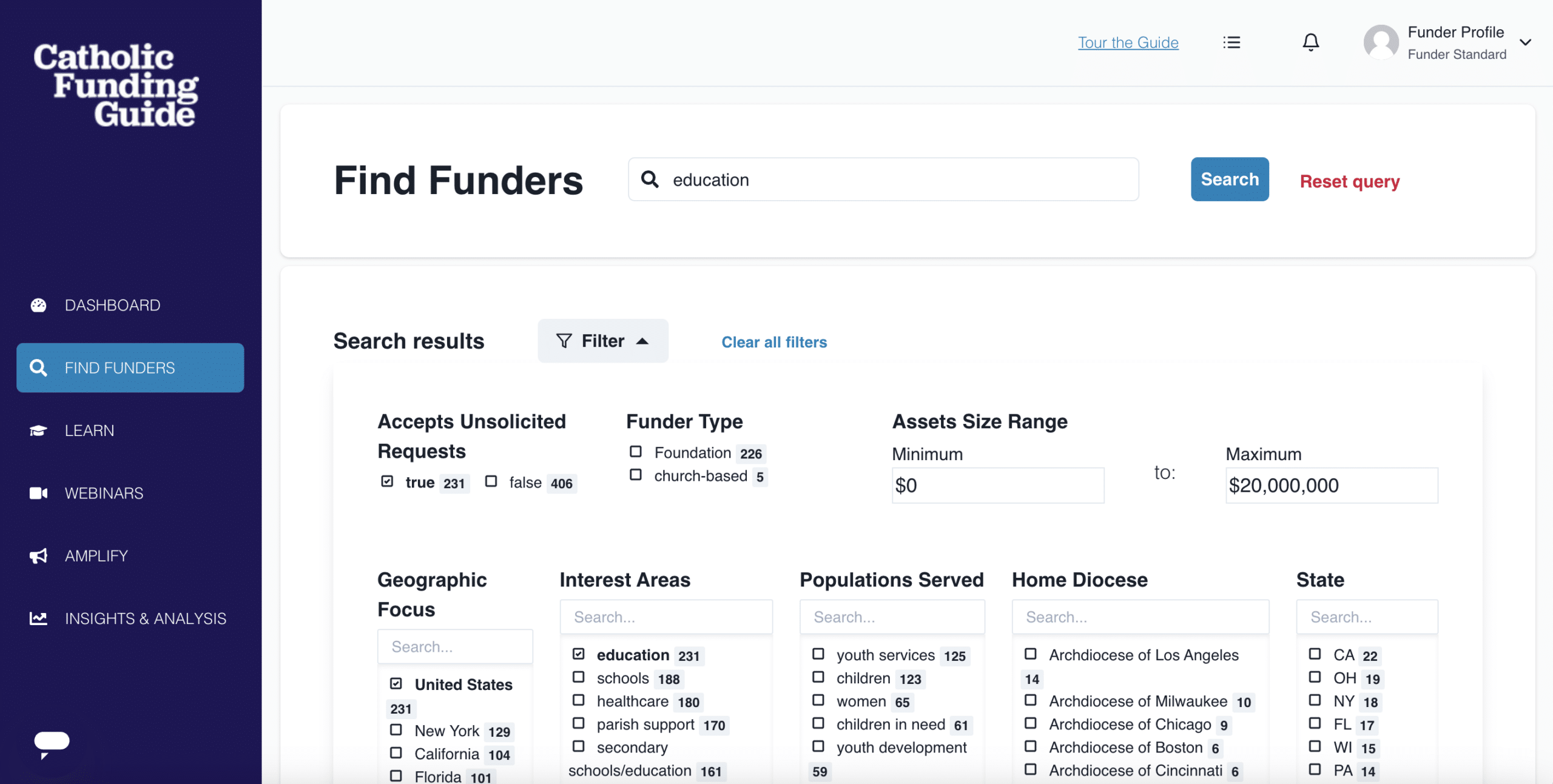“Fundraising is proclaiming what we believe in such a way that we offer other people an opportunity to participate with us in our vision and mission.” – Henri Nouwen
Building and maintaining the relationships needed to invite funders to become active participants in the organization’s work is a critical task for nonprofit fundraising professionals. By inviting the funder to become an active participant in the vision and mission of the organization, the funder becomes fully aligned with the organization’s work, and oftentimes becomes a significant and long-term contributor to this work.
The investment of time to strengthen true partnerships with donors can result in a significant source of funding to further the organization’s mission, and enables the funder to accomplish their goals by taking an active role in making a difference. Thoughtful fundraisers and nonprofit professionals should approach the maintenance of these important relationships with intentionality, knowing their actions can have a lasting impact on the organization and its mission.
Building relationships begins with mutual respect.
Like in any partnership, the basis of a relationship between a funder and nonprofit organization is mutual respect. Start by recognizing that funders are unique human beings, beloved children of God, and important partners in the work of your organization. Acknowledging a funder’s dignity and value beyond being simply a source of revenue is the first step towards a long-lasting, fruitful relationship. Likewise, the funder should respect the organization for the work they carry out. In this symbiotic relationship, both roles are essential to achieve their joint mission.
“Acknowledging a funder’s dignity and value beyond being simply a source of revenue is the first step towards a long-lasting, fruitful relationship.”
Communicate regularly with donors.
Relationships thrive with regular communication, and true partnerships are only possible when both parties communicate often. How this looks in practice can vary widely, but it is important to approach these decisions thoughtfully and strategically. Many grantmakers have specific requirements for the types of reporting they expect, both in terms of the timing and what information you provide. Be attentive and responsive to their requests.
Individual donors, and those grantmaking institutions without specific reporting requirements, may require more consideration regarding the frequency and type of communication.
For example, if an individual major donor is making a significant investment in a particular, time-bound project, they may be interested in weekly updates. If they are a regular contributor to your organization fulfilling their annual pledge, they may prefer to hear from you quarterly so they can better appreciate the “big picture” of their gift’s impact. If in doubt, ask the donor what kind of communication they prefer and how often.
The following questions may be helpful as you determine when to communicate with funders without specific requirements.
- Does the funding have a specific designation, and, if so, what is the time frame for its use?
- Who will be receiving most of the communications: an individual major donor? Or a staff person at a foundation?
- Considering the amount given, how often is appropriate?
- Do they have other involvement with the organization?
- What are the donor’s preferences in terms of frequency and type of communication?
Consider what types of communications will cultivate the donor relationship.
Be deliberate about the types of communications you have with a funder. It’s best to utilize a variety and to ask for the funder’s preferences. Remember to personalize as much as possible and include information regarding their specific interests.
Reports
For grantmakers and other funders with specific interests, a report on the impact and outcomes of the program may be required or helpful. Your funder is a partner in your mission; it’s important to communicate how effective and impactful the program was. A report should share that information with them in a way that resonates both intellectually and emotionally. Include data as well as personal impact stories to convey that their contribution made a difference.
Thanks
Your work would not be possible without your funders. As active participants in your mission, they deserve to be acknowledged, and a thank you goes a long way. Of course, this includes providing any documentation that is required for tax purposes. However, it should go beyond taxes to establishing a personal connection. Ideally, any thank you letters or communications should be sent separately from tax receipts, which are often impersonal and obligatory rather than genuine expressions of sincere thanks. Handwritten notes can be effective as well as thank you notes coming directly from the people who benefit from your work.
Impact
There are many ways to show impact. Some popular ways include sharing success stories, photos of the impact or people who benefited, and before / after descriptions or images. These communications do not need to be in report format, but can be shared through handwritten correspondence, telephone calls, emails, or face-to-face meetings. Do not hesitate to ask a funder their preferred method of communication to ensure that you are conveying the impact of your partnership in the most effective way.

Organizational Communications
Building lasting relationships should incorporate communications beyond fundraising-related matters. To keep your funders aware of your organization’s events and achievements, you may want to include them on your newsletter list and any other relevant communication channels. Their investment demonstrates their commitment to your organization’s mission, and sharing relevant organizational information can further deepen their commitment to working with your organization to achieve your shared vision.
Just Because
It is always good to hear from a friend “just because.” Similarly, it can be helpful to initiate touchpoints with funders throughout the year, just to say “hello” or express your appreciation. Holiday cards, handwritten notes added to newsletters, and other small gestures can strengthen your relationship and show your appreciation for funders as fellow humans and valued partners in your work.
Ask for feedback.
Since your funder is a partner with your organization in accomplishing your mission, make an effort to welcome their insight and input in how you can better carry out your work. Both at meetings with funders and in between, consider asking them for their feedback. Areas of particular interest may include their satisfaction with the donor / organization relationship, their communication preferences, and other insights. If the funder has a special area of interest or expertise, don’t hesitate to ask for their insights in matters related to that field. Remember that they are invested in your organization’s success, just as you are, so they will likely be happy to help how they can.
Although a personal conversation can be helpful, surveys or another less time consuming or more anonymous method is often highly effective. Surveys can help supporters feel valued, engaged, and involved in your work.
Asking for donor feedback can open your organization to vulnerability, as it opens the door to both positive and negative feedback. However, this vulnerability builds trust, and helps open your eyes to areas of improvement as well as strengths you may not have previously noticed. It also solidifies your funder’s role as an active participant in your mission. If the funder offers positive feedback, you can involve them even further in your mission by asking them to write a testimonial, endorsement, or even an article for your newsletter.
Be open and honest.
One final, but critical, aspect of your relationship with a funder is to be open and honest. It can be tempting to only want to share your organization’s successes with a funder, and skim over your challenges. However, being upfront about the difficulties your organization is facing is important for several reasons. First, it will help to manage the expectations of the funder, ensuring there are no negative surprises at the conclusion of your program. It also, again, builds trust, as your funder will see and appreciate your organization’s transparency. Finally, it treats your funders as partners in a shared work, keeping them aware of any barriers you jointly face to successfully carrying out your mission.
When sharing your challenges, it’s important to address how you plan to overcome them. This demonstrates your organization’s proactive approach and competency. For example, if you encounter delays in launching a new program, you can share some of the unexpected factors that led to its delay as well as your plan to launch the program on a new date. Sharing what you have learned from this experience and how it will inform future decisions may also be beneficial. Discussing obstacles in this way will put your funder’s mind at ease while reinforcing confidence in your organization. Welcoming any questions or concerns from the funder will also go a long way in fostering the relationship.
With these priorities in mind, you will be well equipped to cultivate donor relationships. Read on to learn more about the nuances of building relationships with Catholic philanthropists.



